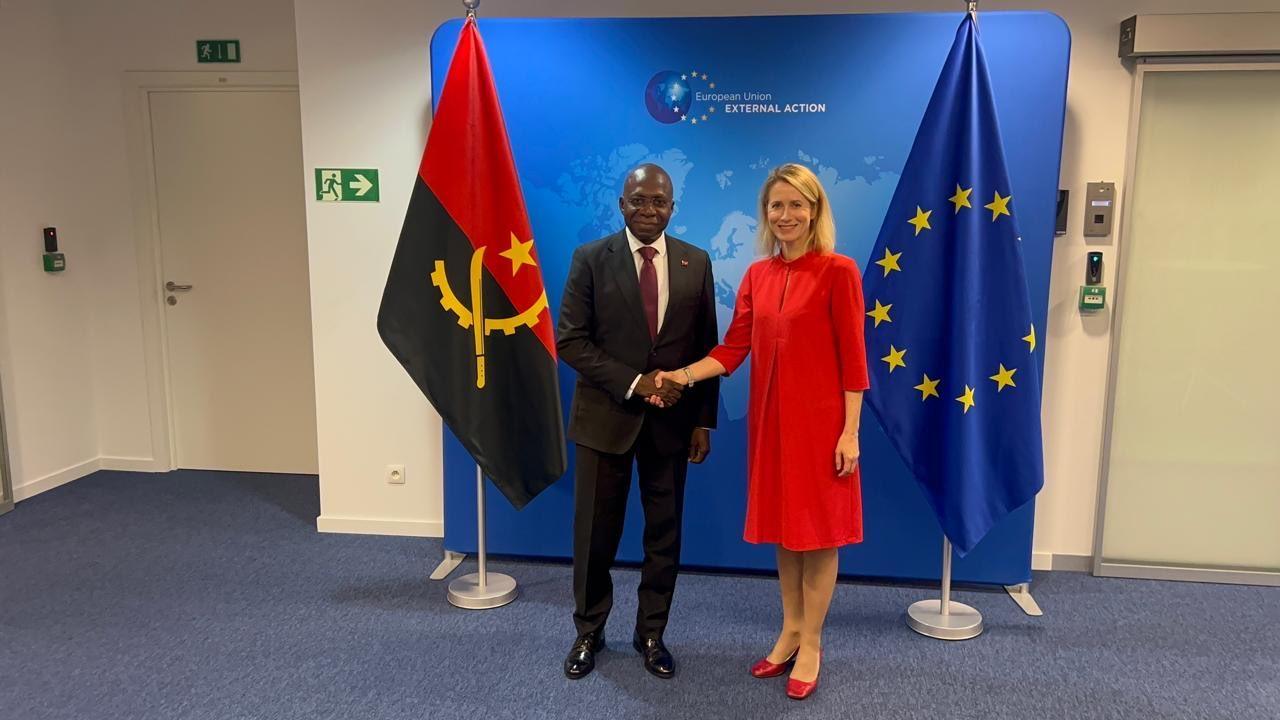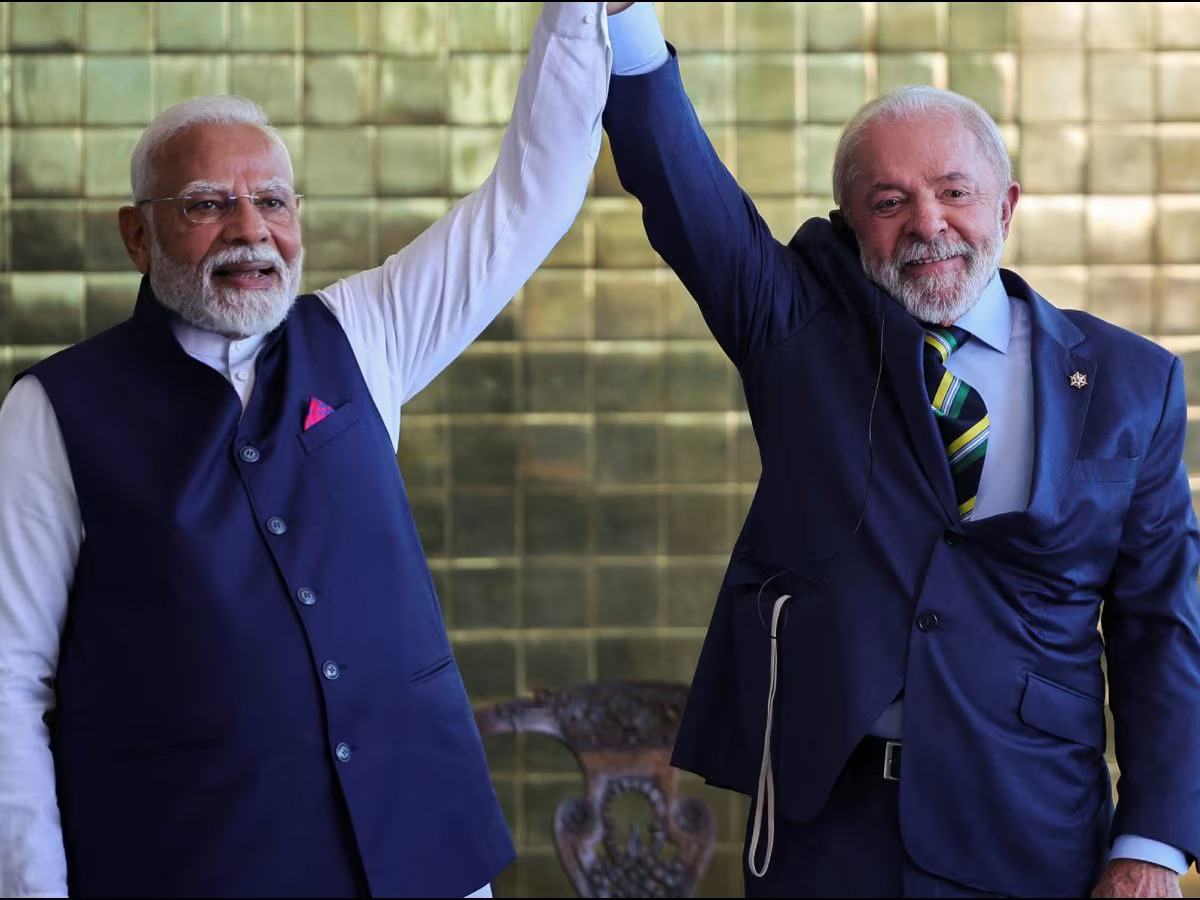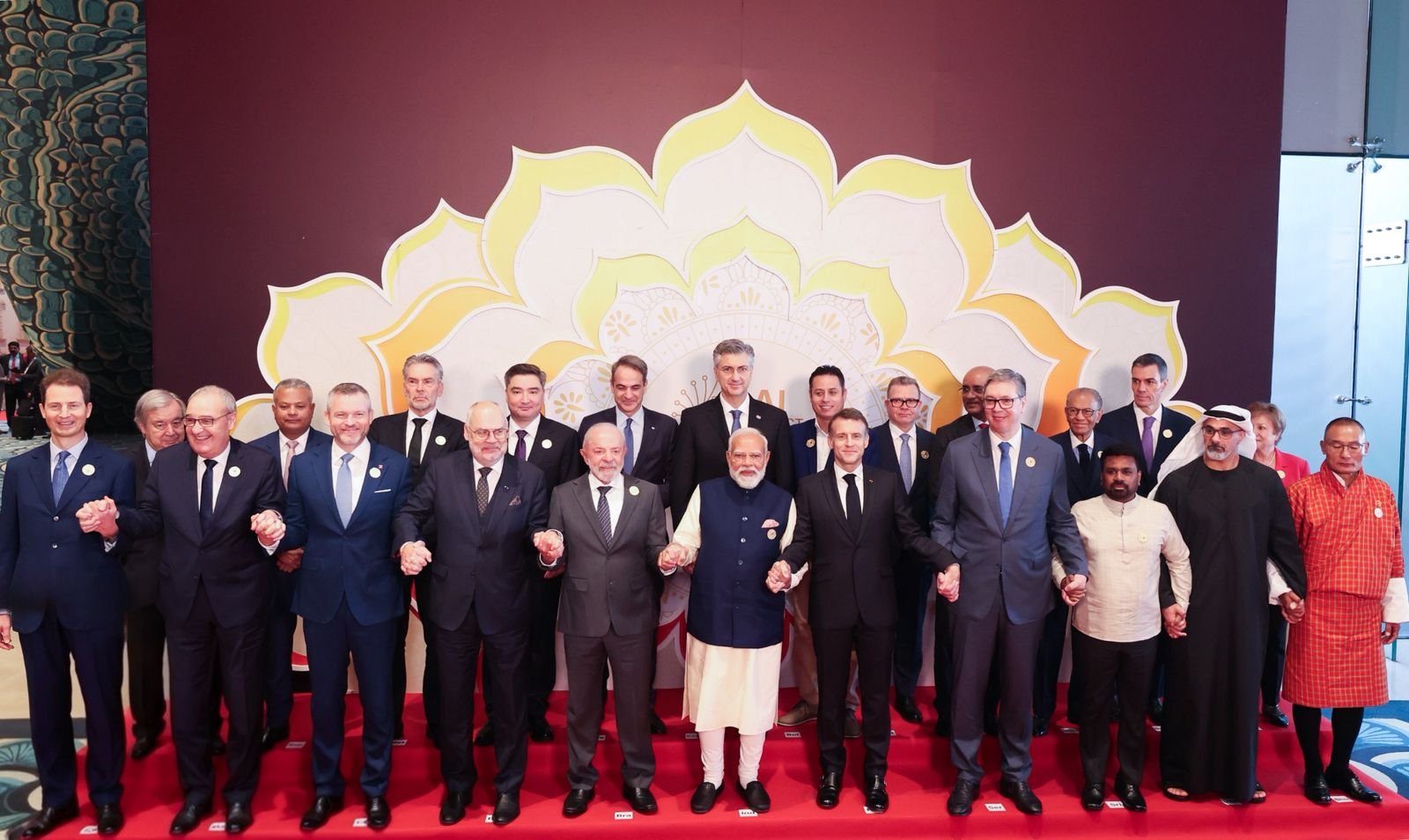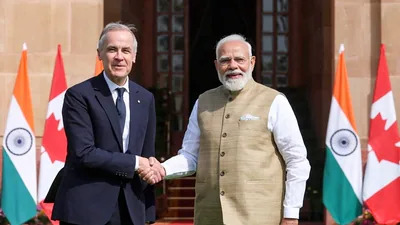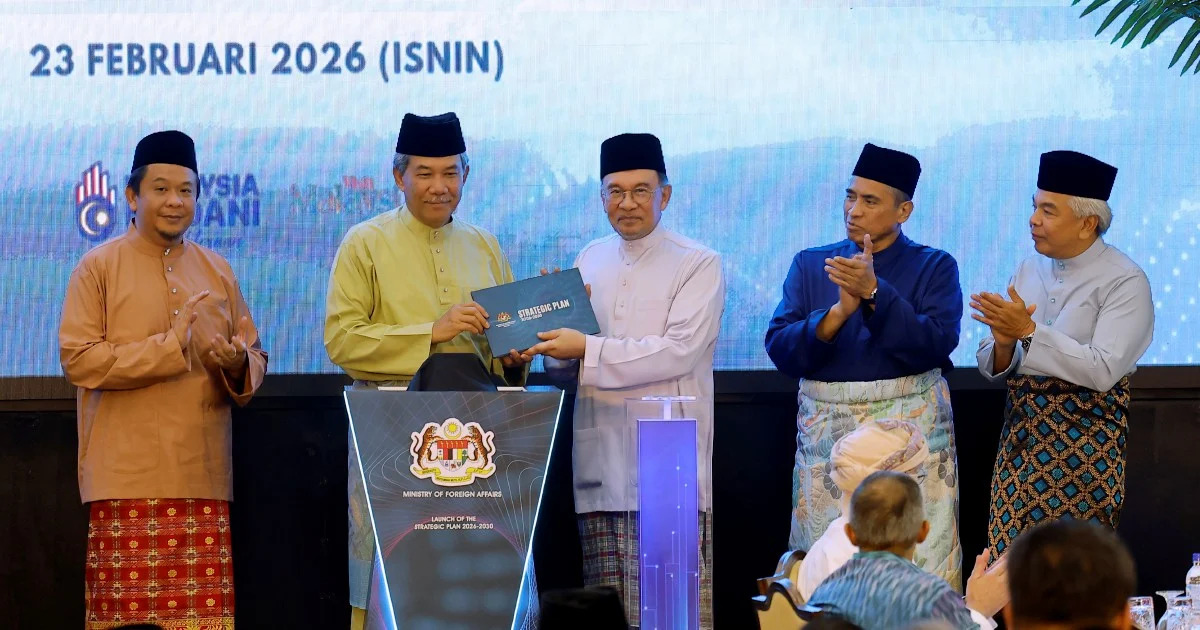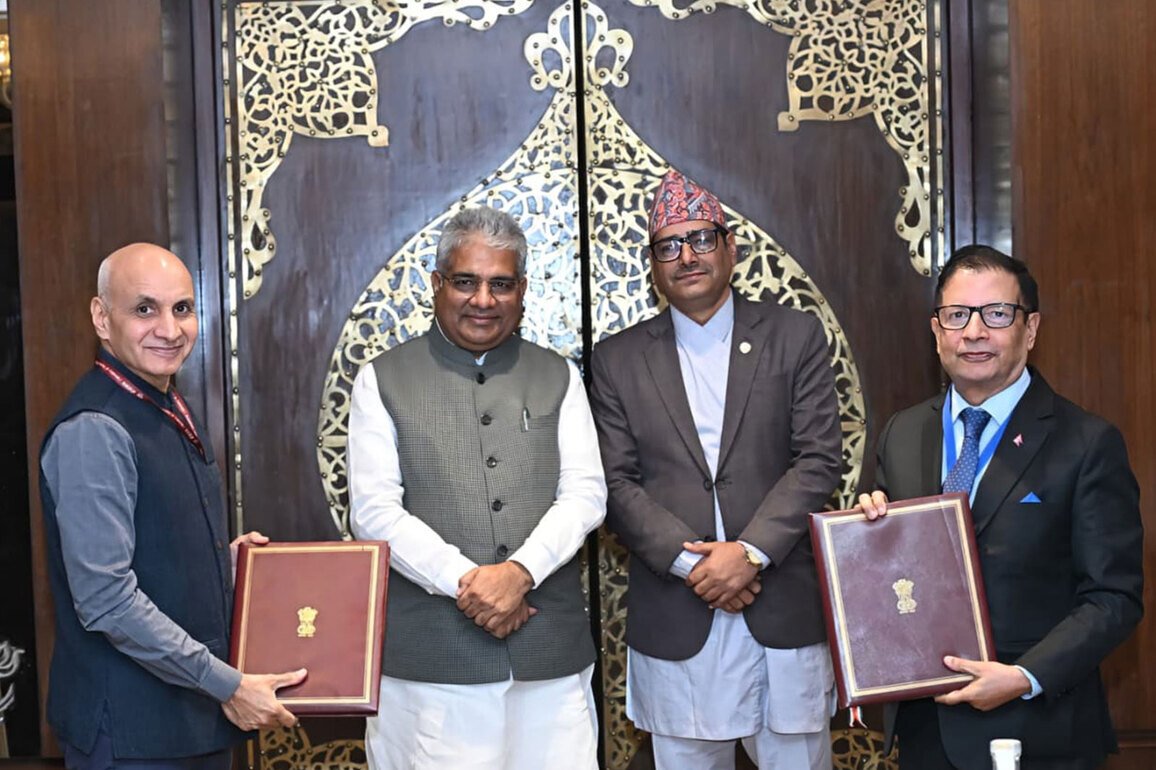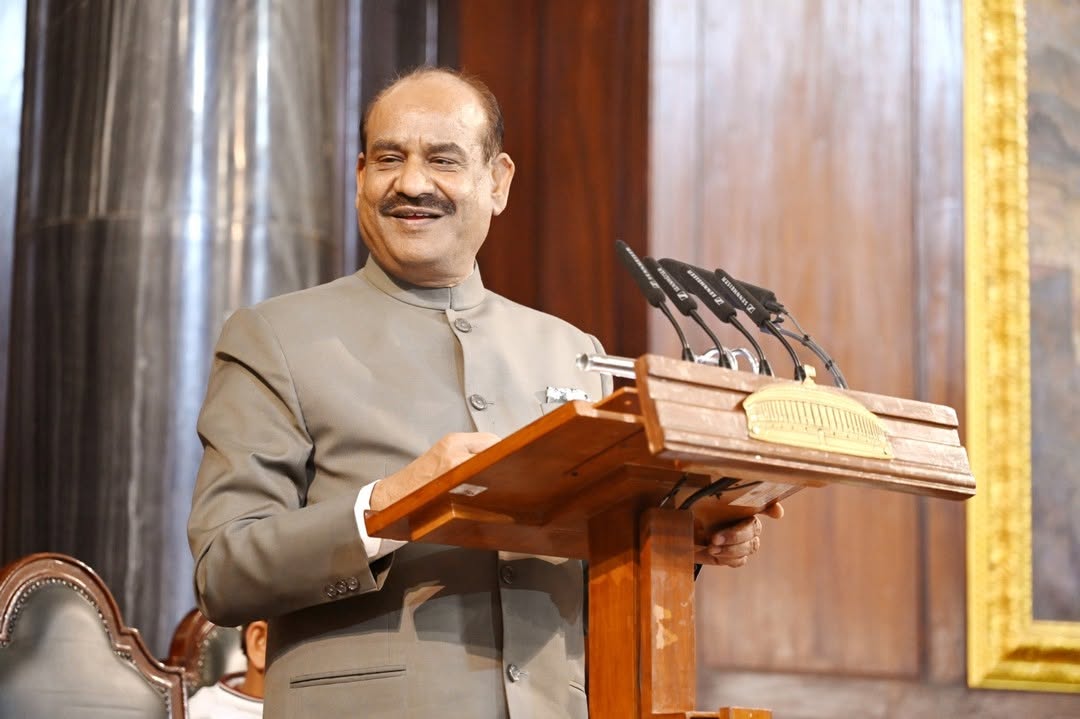Nigeria’s President, Bola Ahmed Tinubu, has embarked on a landmark state visit to Brazil, signalling Abuja’s determination to forge closer ties with Latin America’s largest economy. Over two days in Brasília, President Tinubu and his delegation met with Brazilian President Luiz Inácio Lula da Silva, senior government officials, and prominent business leaders in a series of engagements designed to reset and revitalise a relationship that stretches back more than six decades. He arrived in Brazil on 27th August, 2025.
The visit comes at a pivotal time for both nations. Nigeria, Africa’s most populous country, is seeking to diversify its economic partnerships beyond traditional Western allies, while Brazil, a central member of the BRICS bloc, is looking to reinvigorate ties with Africa following years of stagnation. Against a backdrop of shifting global trade dynamics, tariffs imposed by Washington, and growing calls for economic multipolarity, the Tinubu–Lula summit has been widely seen as an effort to establish practical, mutually beneficial cooperation.
Reviving a Waning Trade Relationship
At the heart of the discussions was the acknowledgement that trade between Nigeria and Brazil has experienced a steep decline over the past decade. In 2014, bilateral trade was valued at around US$10 billion; by last year, it had fallen to just US$2 billion. Nigeria had once been Brazil’s fourth-largest trading partner on the African continent, but the relationship has since weakened due to global market fluctuations, supply chain disruptions, and a lack of structured investment frameworks.
President Lula made clear his intention to reverse this trend, stressing the importance of open trade at a time when protectionist policies and unilateral measures are on the rise. “At this moment, when protectionism and unilateralism are resurging, Nigeria and Brazil reaffirm their commitment to free trade and productive integration,” he remarked, underlining the shared desire to resist global fragmentation. For his part, President Tinubu highlighted Nigeria’s demographic advantage. With a predominantly youthful population eager to innovate and collaborate, he argued that Brazil’s expertise in sectors such as agriculture, energy, pharmaceuticals, and aviation offers a natural complement to Nigeria’s ambitions for industrial growth and technological advancement.
Signing of Strategic Bilateral Agreements
The visit produced tangible outcomes, with five key agreements signed between the two governments. Among the most notable was an accord on civil aviation, which approved the launch of a direct flight between São Paulo and Lagos. Operated by Nigeria’s largest carrier, Air Peace, this route is expected to become a vital commercial and cultural bridge, boosting tourism, trade, and business opportunities across the Atlantic.
Other memoranda of understanding covered a wide spectrum of cooperation:
- Diplomatic training and political consultation, enabling regular dialogue on bilateral, regional, and international matters.
- Financial collaboration between Brazil’s Development Bank (BNDES) and Nigeria’s Bank of Agriculture (BoA) to stimulate investment and promote agribusiness.
- Science, technology, and innovation, with plans to strengthen joint research in biotechnology, ocean science, digital transformation, and space development.
- Security cooperation, with Brazil committing to post a Federal Police attaché in Nigeria to bolster efforts against organised crime, terrorism, and international drug trafficking.
These agreements underscore a shift from symbolic diplomacy to concrete, high-impact initiatives aimed at achieving sustainable development and enhanced security.
Energy: Petrobras Returns to Nigeria
One of the most significant announcements of the visit was the confirmation that Petrobras, Brazil’s state-owned oil giant, is preparing to re-enter the Nigerian market after a five-year hiatus. This development has been warmly welcomed by the African Energy Chamber, which described it as a landmark moment for Africa–Brazil energy relations.
For Nigeria, Petrobras’s return promises not only much-needed foreign investment but also the transfer of technical expertise in exploration and gas development. President Tinubu stressed Nigeria’s determination to ensure that its position as Africa’s third-largest oil producer translates into greater commercial opportunities, rather than mere export dependence.
Brazil, in turn, sees Nigeria as a gateway to Africa’s energy markets, with opportunities for exports, technology collaboration, and shared innovation in renewable and sustainable energy. NJ Ayuk, Executive Chairman of the African Energy Chamber, hailed the move as proof that Africa is “open for business” and capable of attracting global partners willing to invest in its long-term growth.
Agriculture, Industry, and Beyond
Beyond energy, agriculture emerged as a central theme of discussions. Both nations share a strong agricultural base, and earlier this year, Brasília and Abuja agreed to implement the commercial phase of a US$1.1 billion deal aimed at boosting private sector investment in Nigeria’s agribusiness. With Brazil’s global leadership in agricultural technology and Nigeria’s vast arable land, the partnership is expected to improve food security, increase exports, and foster rural employment.
Nigeria has also expressed interest in Brazil’s pharmaceutical sector, particularly the industrial production of generic drugs, an area in which Brazil has considerable expertise. Joint initiatives in healthcare, manufacturing, and aviation technology were explored, further broadening the scope of cooperation.
A Shared Commitment to Global Challenges
The discussions was not confined to economics. Both leaders acknowledged the security threats posed by transnational crime. President Lula noted that “no country can defeat organised crime on its own,” calling for coordinated multilateral responses to terrorism, drug trafficking, and other cross-border challenges.
The commitment to address global inequalities also featured prominently. Lula’s emphasis on Africa’s development highlighted Brazil’s recognition of the continent’s growing importance in the international order. Both leaders reiterated their vision of a more inclusive, multipolar world, free from “hegemonic impositions.” President Tinubu’s state visit to Brazil represents more than a ceremonial exchange; it is a recalibration of Nigeria–Brazil relations in line with twenty-first-century realities. The agreements signed signal a determination to move from rhetoric to results, with practical steps already being taken in aviation, energy, agriculture, and technology.
For Nigeria, the visit demonstrates Tinubu’s ambition to diversify strategic alliances beyond traditional partners in Europe and North America. For Brazil, it reflects a renewed commitment to Africa, positioning the South American nation as a bridge between the Global South’s rising economies. As direct flights take off, Petrobras re-establishes its footprint, and bilateral research initiatives commence, the partnership between Nigeria and Brazil could well become a model for South–South cooperation. Both nations, once linked by history, are now laying the groundwork for a future defined by shared prosperity, innovation, and resilience.


